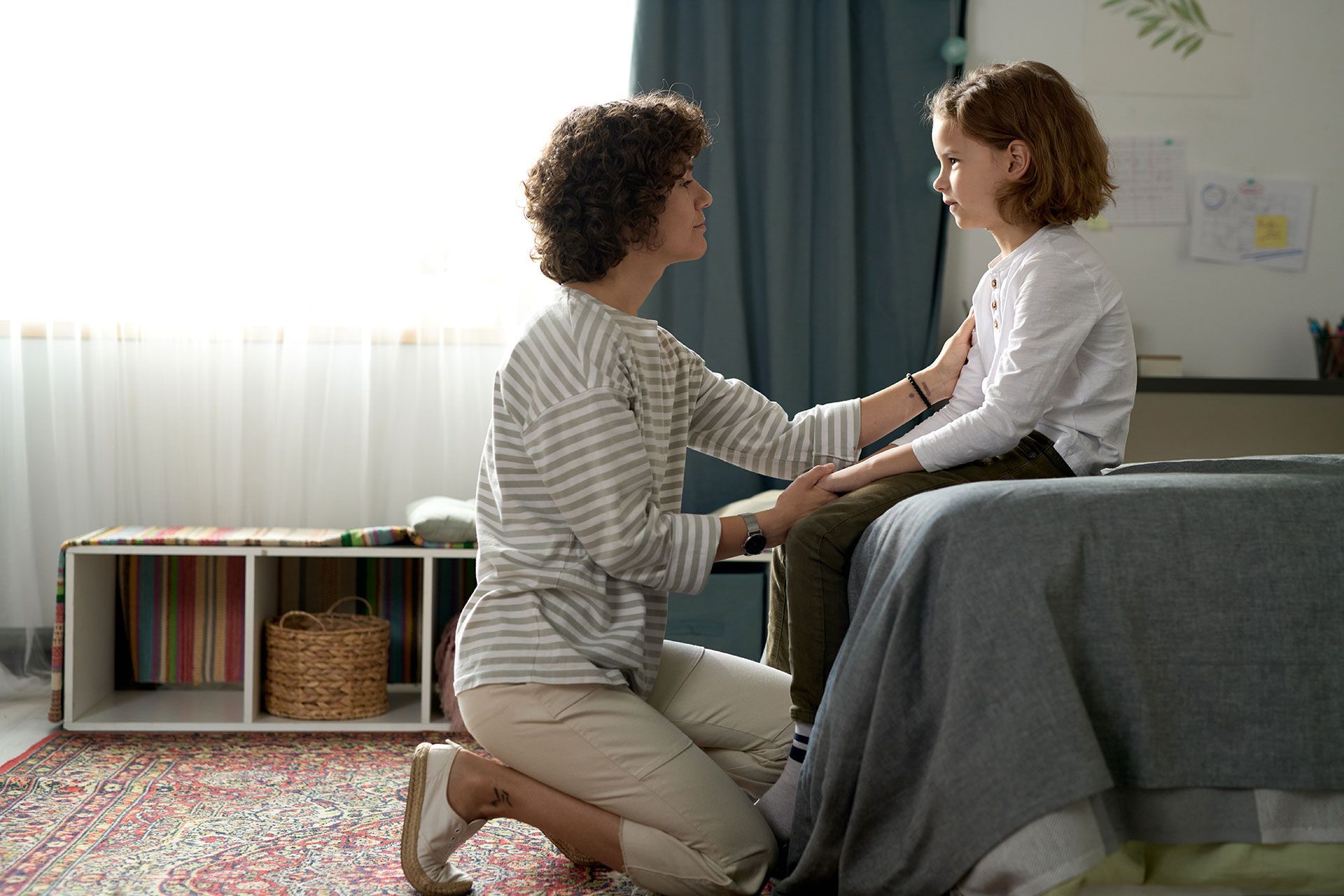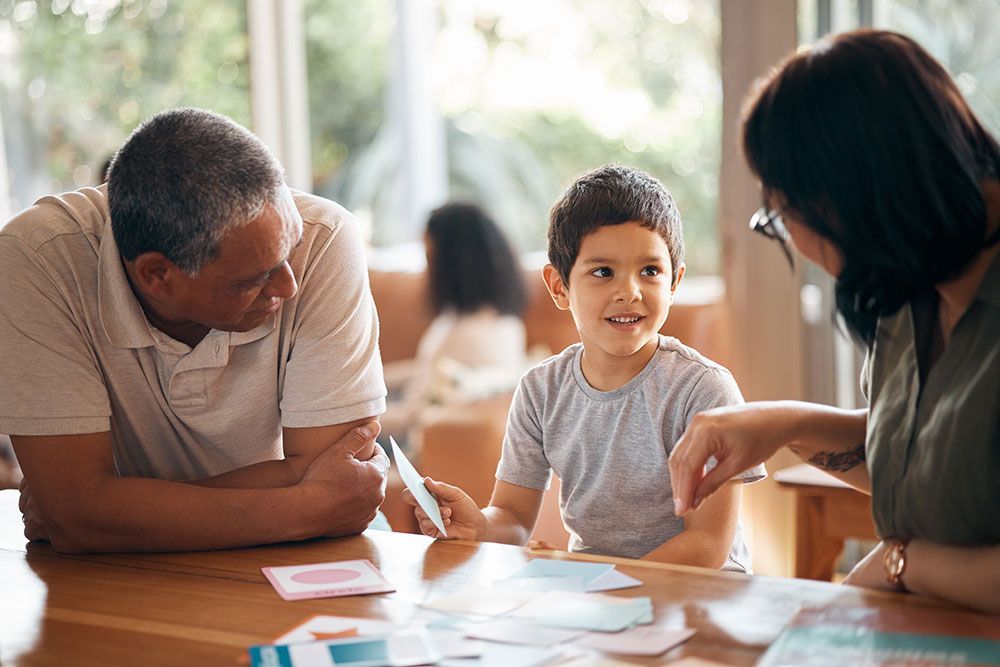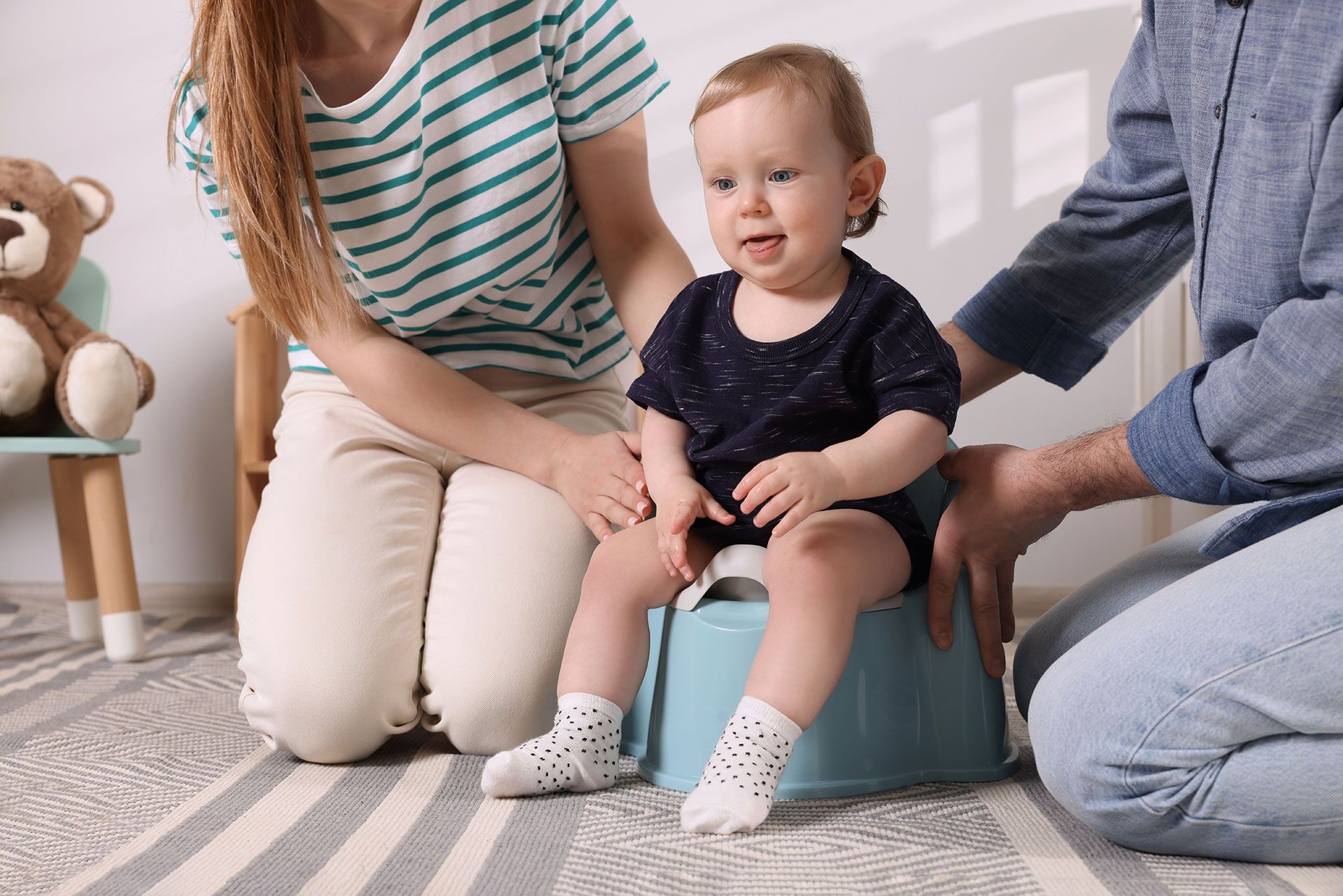Coping During a Pandemic; The Woodlands Behavioral Health & Wellness Center Offers Support
May 6, 2020

THE WOODLANDS, TX -- “I think there’s a significant chance that [the pandemic] can impact mental health, especially in a negative way,” said Clinical Psychologist Melissa Mignogna, Ph.D, who works at The Woodlands Behavioral Health & Wellness Center.
She said that reduced contact with loved ones and friends, a lack of routine, and the threat posed by the virus itself can be a major source of anxiety and increased depression for individuals.
To help with these difficult times, The Woodlands Behavioral Health & Wellness Center offers complimentary consultations to help children and adults determine if a counseling, medication or group therapy would be beneficial. They also offer Executive Skills Coaching to help children and parents create schedules and organization that will help them regulate behavior, improve academics, and meet at home demands.
Parent coaching is an option as well. It provides parents with new tools to utilize with their children. These tools help model healthy relationships and understanding of the world as it is in today’s environment, and cultivate effective parenting techniques that make sense to both the child and the parent.
The Center has also created a package for couples utilizing the Gottman Therapy Method. This consists of 5 sessions aimed at helping couples reconnect and understand each other.
Lastly, they have put together a young adult program. This pandemic has caused many young adults to not leave home, or, to return home suddenly due to colleges closing, lay offs and lack of funds. The program consists of individual therapy, group therapy and parent coaching.
Dr. Mignogna said that currently, what is considered to be normal day-to-day functioning has been thrown out completely. Utilizing community resources can be beneficial for all ages.
Progress reports are meant to keep parents in the loop but sometimes they bring more questions than answers. If your child’s grades don’t reflect their effort or intelligence, or if teachers are noting disruptive behaviors, it can be both confusing and frustrating. When to Be Concerned Sudden drop in grades: A sharp decline may point to more than just a “bad week.” Strong effort, low results: If your child studies but test scores don’t match, it could signal learning differences. Behavior changes at school: Acting out, constant distractions, or emotional outbursts can all interfere with academics. Consistent teacher concerns: Ongoing feedback about focus, homework, or social interactions deserves a closer look. Why It Happens Many factors can affect a child’s performance: ADHD or attention challenges Anxiety, stress, or depression Learning differences or processing issues Emotional struggles that aren’t obvious at home How We Can Help At The Woodlands Behavioral Health & Wellness Center , we provide: Neuropsychological Assessments to uncover learning, attention, or emotional challenges. Individual Therapy to help children develop coping skills and emotional regulation. Parent Guidance & Support so families can understand and respond to their child’s needs. Collaboration with Schools to advocate for the right supports and accommodations. Next Steps for Parents If your child’s progress report doesn’t match their potential or if behaviors are causing concern you don’t have to figure it out alone. As always, we invite you to start with a complimentary consultation to learn more about your child and the options available. Give us a call at 281-528-4226 or visit addwoodlands.com .
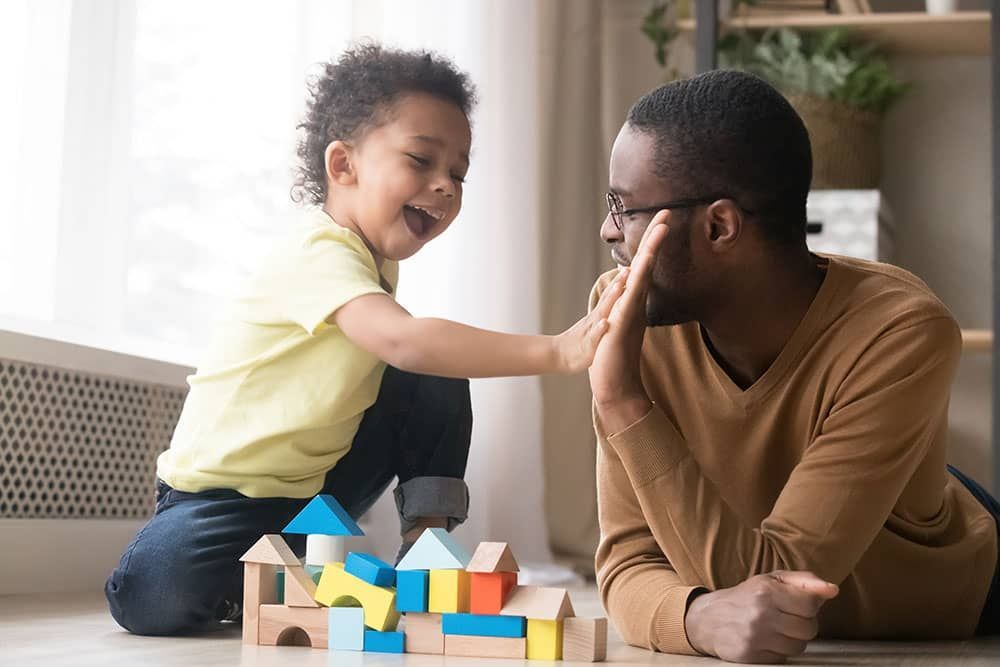
Parents often wonder how to help their young children build communication skills. Read on for a few tips to enhance your child’s language abilities. Children learn by watching and listening to others. Get in the habit of narrating your day as if you are a newscaster. o Describe aloud what you are doing: Example: While you are helping them get dressed, you could say “I am putting on your pants because it is cold outside.” o Narrate what your child is doing: Example: While they play, you could say, “You are picking up the tiles and making them stick together!” o Speak loudly and clearly, emphasizing important words. Example: During bath time, you could say “I’m washing your HAIR. Now I’m washing your BELLY.” (emphasizing the words) o Read with your child each day. Focus on labeling what you see and asking them questions about the story. o Imitate and reflect on words that your child uses, even if they aren’t perfect! Example: If your child says “car,” you could say, “Red car! The red car goes fast!” As a parent, you are likely very good at knowing what your child wants even if they don’t use words to tell you. o However, it is helpful to intentionally create situations where your child needs to use speech (or an attempt at it!) to communicate their needs. Example: Prompting them to ask for the snack they want by saying something like “tell me what you would like” or “you can say ‘more’ if you want more”. If they attempt to speak (e.g. “goh” for “goldfish”) give lots of praise and provide the desired snack. Require more speech each time for this activity (e.g. moving from “goh” to “gold” for “goldfish”).
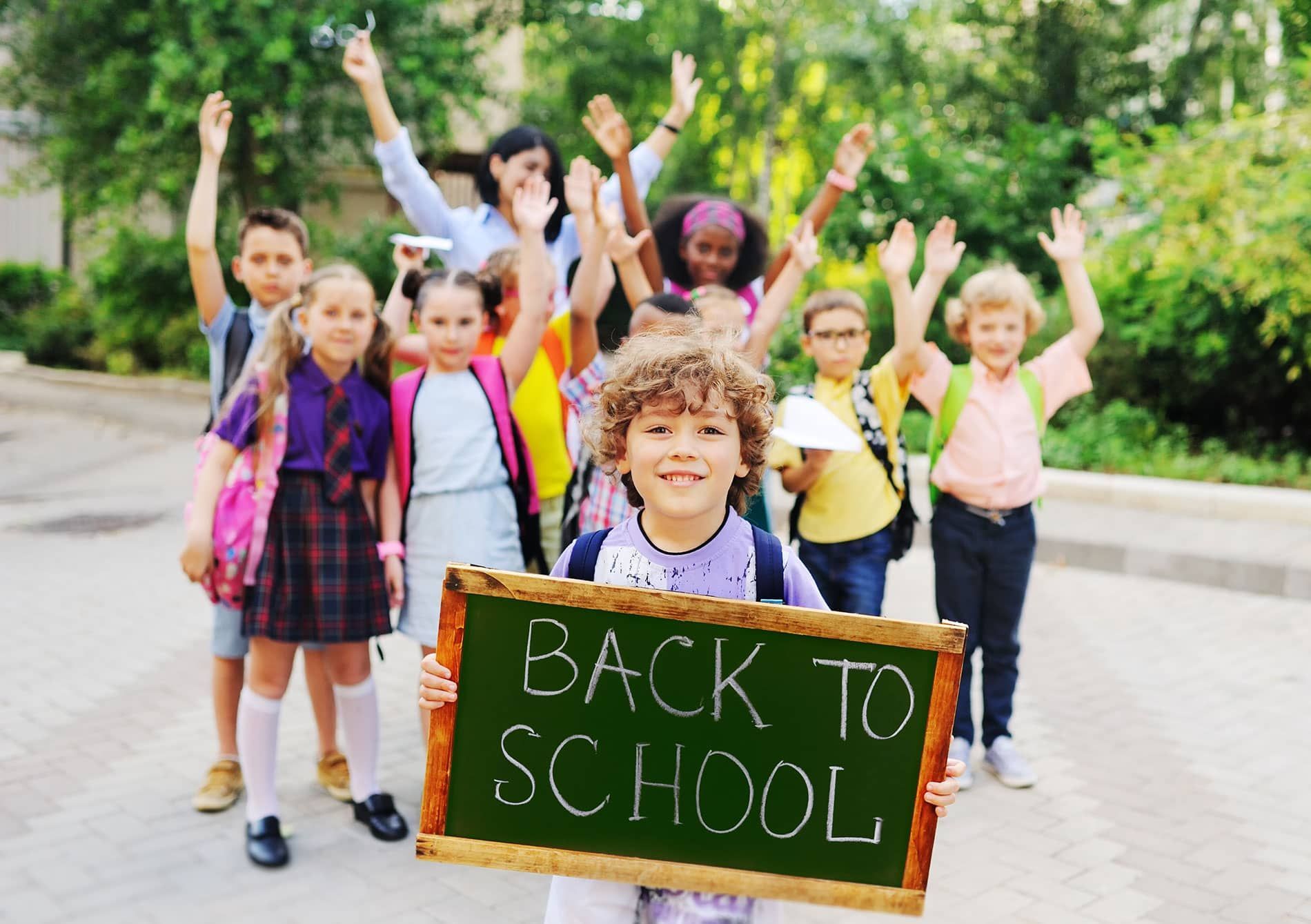
It is hard to believe, but another school year is here! While exciting, the transition from relaxing summer vacation to busy back-to-school can be challenging. Read on for strategies to set your family up for success this school year. Plan ahead Before meeting the teacher, the first day of school, and any other milestones, talk with your child about what to expect. For children who have attended daycare or school before, talk about what will be the same as last year and what will be different. Help them to remember that, while many things will be different, many things will be familiar, too! When possible, tour or look at pictures of the school, classroom, teacher, and any friends that will be in the new class. 2. Listen Offer a non-judgmental space for your child to express their nerves, concerns, and hopes for these next few weeks. Try not to jump in too quickly by saying things like “don’t worry about that” or “stop it, it will be great!” While such statements come from a good place, they can feel dismissive to your child. Instead, work to validate their feelings and address their concerns together. 3. Make it fun One way to help guide your child through glass-half-empty statements such as, “I’m not going to have any friends in my class...it’s going to be the worst year ever!” is to play the “maybe game.” You could say, “That sounds really tough. I hear you – maybe that will happen...OR...maybe you will find a new friend and really like how your new teacher does things!” By validating their concerns instead of dismissing them, you offer space for both things to be true at the same time. 4. Re-frame Help your child to re-frame their worries as reflections of the care you have for each other and the trust that you will be there for them at the end of the day – no matter what. For example, if you think your little one might cry at drop off, you could say “It’s okay to cry and miss me at school after I leave. I will miss you too! That is because we love each other. I will be there to pick you up and can’t wait to hear all about your day. What toy do you think you will play with first?” 5. Empower Remember – your child is looking to you to gauge if they should be worried. Work to communicate confidence, instill bravery, and let them know that you know they can do it. If your little one thinks you are scared, they will have a much harder time pushing through. A brave parent is the most helpful way to ensure a brave child! 6. Wear your heart on your sleeve ...or your hand! One strategy to help young children with separation anxiety at drop off is to draw a heart on each of your hands. Tell your child that you can either kiss or tap your heart (or both!) during the day when you miss each other, knowing that the other person is feeling it too!
The journey to college isn’t a straight line, it’s a series of thoughtful choices that start earlier than most families realize. Whether you have an incoming freshman or a rising senior, here’s a quick roadmap to help guide the process:

One of the most difficult aspects of parenting toddlers is knowing how to manage the behaviors they exhibit as they learn to communicate their feelings. For many parents, biting and hitting are at the top of that list. Read on for tips on what to do when your child bites or hits... Self-talk . Say to yourself, “I don’t like that they bit/hit and hurt someone else, but I can teach them other ways to express their feelings.” Empathy. Ask yourself, “Wouldn’t I have a hard time expressing myself when I’m mad or upset if I didn’t have the language to do that, or the ability to problem solve in non-aggressive ways? I know how my child feels!” Teach . Young children learn very early that their hands and teeth are powerful weapons that elicit an equally powerful reaction when used. However, this can cause lots of problems for you and your child. The key is to teach your child that biting and hitting hurt and there are other ways to express feelings without hurting others. Tell yourself, “I can teach my child how to respect others and use words to express feelings. I know it will take time and patience, but they can learn.” When your child bites or hits, provide a brief teaching statement, such as “No bite. Biting hurts” and give them a word or action within their skill abilities to replace the biting. For example, “You can say ‘no hug’ instead” or “you can walk away.” When you do this, you are teaching your child how his behavior affects others and what else they can do instead. Reinforce. Practice by setting your phone timer for 5 minutes (or longer or shorter, depending on how long you think your child can play with another child without your motivating praise) and say, “When you have played gently with Jack until the phone timer sounds, we can read your favorite book together. You are getting along so well.” Offering a reward as an incentive for self-control discourages conflict. Praise. When children (even siblings) are getting along, it’s important to praise their effort frequently. Simple statements, such as, “Good taking turns,” or “You are playing so nicely together,” reminds them of the goal of getting along vs. fighting. Teach compromise. When conflict arises, say, “Let’s find a way to let both of you play with that toy. I’ll use my phone timer to tell us when it’s your turn to play with it.” Your child can learn patience as they wait their turn, as well as problem solving and compromise—instead of biting or hitting. What not to do: Don’t hurt your child. Biting/hitting back and spanking are all behaviors you don’t want them to learn, so don’t use them. Don’t overreact. Getting upset when your child bites or hits keeps you from problem solving. Keep yourself calm by using calming self-talk. Say to yourself, “This is a problem we can solve. I just need to stay calm to do it.” Don’t threaten. Threatening your child creates fear but doesn’t teach the behavior you want. Instead, simply say, “Let’s work on ways you can get what you want without hurting someone.” Source: Behavior Checker from the Raised with Love and Limits Foundation

As we prepare to celebrate Valentine’s Day, check out this month’s quick tip to share the love with your children and let them know how much you appreciate what they do! As you go about your day, talk to your child’s stuffed animals or other family members about all of the wonderful things they do. While praising your child directly - such as, “you did a great job staying calm” - is always beneficial, speaking positively about them to others can be equally powerful. As you are helping them get ready in the morning, you could say “wow, I am so proud of Alex for starting to brush his teeth all by himself!” While supervising your children playing, you could say “Olivia and Emma are such thoughtful sisters. I love watching them problem-solve and work together!” As you and your partner prepare for the bedtime routine, you can playfully “fight over” who gets to put your child to bed. For example, “I want to do it!” and “I also want to do it - I just love spending time together!” The words your child hears you speak about them to others can become part of their internal monologue. Make the most of the little moments and share the love with everyone (and everything) around you!

